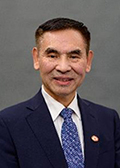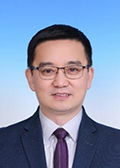Review paper on Computer-assisted Surgery in Oral and Maxillofacial Oncology Published by Guang-Yan Yu and Xin Peng’s Research Group of PKUSS
Recently, a review paper entitled Application and Prospects of Computer-assisted Surgery in Oral and Maxillofacial Oncology was published in Science Bulletin as the result of collaboration between Guang-Yan Yu and Xin Peng’s research group,(Department of Oral and Maxillofacial Surgery of PKUSS), and Professor Julio Acero, the former president of the International Association of Oral and Maxillofacial Surgeons. This paper systematically reviewed recent progress and provided fresh insights into future advances of computer-assisted surgery technology in oral and maxillofacial oncology. Professor Xin Peng is the first author of this paper, while Professor Guang-Yan Yu and Professor Julio Acero are the corresponding authors.
Surgery is the primary treatment modality for tumors withinthe oral and maxillofacial region. It has always been a challenge for oral and maxillofacial surgeons to obtain good results in tumor excision as well as satisfactory aesthetic and functional reconstruction due to complex anatomy, particularly for deep lesions within the head and the neck. The high risks of surgical oncologic resection often result in devastating defects on the patient’s facial appearance and important functions.
The conventional surgical workflow for tumor ablation and reconstructive surgery often relies on individual surgeons’ experience and subjective judgement, therefore leading to uncertainties and less predictable outcomes. Recent technological innovations of the new digital age have significantly impacted the field of cranio-maxillofacial surgery, by providing more precise diagnosis and helping surgeons to enhance treatment safety, as well as obtaining better aesthetic and functional results.
This paper systematically reviewed the latest progress of multimodal image-fusion, computer-assisted design, 3D manufacturing, surgical navigation, mixed reality, surgical robots and other digital technological breakthroughs applied in oral and maxillofacial oncology.
The authors pointed out that computer-assisted technology in oral and maxillofacial oncology is promising, and having contributed to improving the accuracy and safety of surgical procedures in this challenging area. Many new applications are still being developed at present. Mixed reality technology, artificial intelligence and big data platforms for disease diagnosis and treatment, together with specialized surgical robots for oral and maxillofacial surgery, are the various prospective and potential research directions.
At the end of the paper, the authors also suggest that besides further integration of medicine and engineering, ongoing professional training is necessary to promote the application and further development of computer-assisted technology.

Applications of computer-assisted surgery technology in oral and maxillofacial oncology.
Since established in 2011, the Laboratory of Digital Stomatology, Department of Oral and Maxillofacial Surgery of PKUSS, has been committed to research on computer assisted technologies in oral and maxillofacial surgery: conducting more than 2000 cases of computer-assisted surgeries, publishing many academic papers, developing national consensus standards, and spearheading the application of surgical navigation combined with mixed reality technology inthe research and development of oral craniofacial surgery robotic systems in China.
Profile of Professor Guang-Yan Yu

Guang-Yan Yu is a professor, chief physician and doctoral supervisor of Oral and Maxillofacial Surgery in Peking University School and Hospital of Stomatology. He served as president of the Chinese Stomatology Association, dean of Peking University School and Hospital of Stomatology, and was awarded a Honorary fellowship by the Royal College of Surgeons in England and Edinburgh. His main research areas are salivary gland diseases, oral and maxillofacial oncology and salivary gland transplantation in the treatment of severe xerophthalmia. To date, he has undertaken more than 40 key projects, including projects of the National Natural Science Foundation of China, and published more than 500 papers, of which more than 200 were included in SCI, and 17 textbooks as the lead author. He has been nominated for various scientific and technological progress prizes at both the national provincial level. He has also supervised around 90 graduate students and postdoctoral candidates. Other titles include: honorary president of the Chinese Stomatology Association, vice president of the Chinese Medical Doctor Association, and former chairman of the Asian Association of Oral and Maxillofacial Surgeons.
Profile of Professor Xin Peng

Xin Peng is the associate dean of Peking University School and Hospital of Stomatology, professor, chief physician, doctoral supervisor and deputy director of the Oral and Maxillofacial Surgery Department. He is currently the vice chairman of the Specialty Committee on Oral and Maxillofacial Oncology of the Chinese Stomatological Association, the Standing Committee of the Specialty Committee of Oral and Maxillofacial Surgery of the Chinese Stomatological Association, the Standing Committee of the Stomatological Education Committee of the Chinese Stomatological Association, the vice chairman of the Specialty Committee of Oral and Maxillofacial Surgery of the Beijing Stomatological Association, and the vice chairman of the Specialty Committee of Digital Stomatology of the Beijing Stomatological Association. Additionally, he is also a member of the Asia-Pacific Council and President of AOCMF. The main areas of his clinical expertiseinclude oral and maxillofacial oncology and reconstruction, salivary gland diseases and digital technology applications. To date, he has led 10 national and provincial-level scientific research projects and has been nominated for 7 national and provincial-level scientific and technological progress awards. Altogether, he had published more than 250 papers, including 55 SCI papers as first author or corresponding author.
last text: Collaborative research led by Yongsheng Zhou, Fuchou Tang and Jie Qiao on identification o…
next text: With the multi-unit cooperation led by Peking University School and Hospital of Stomatolog…






